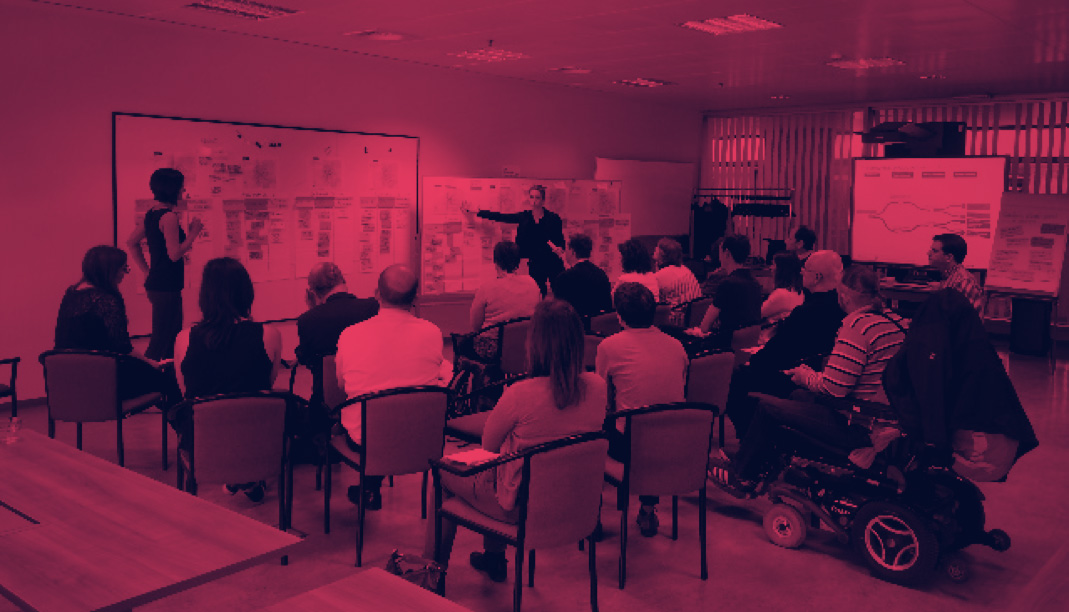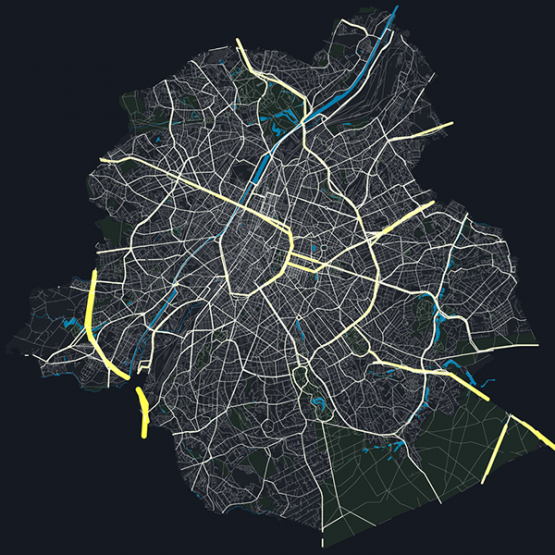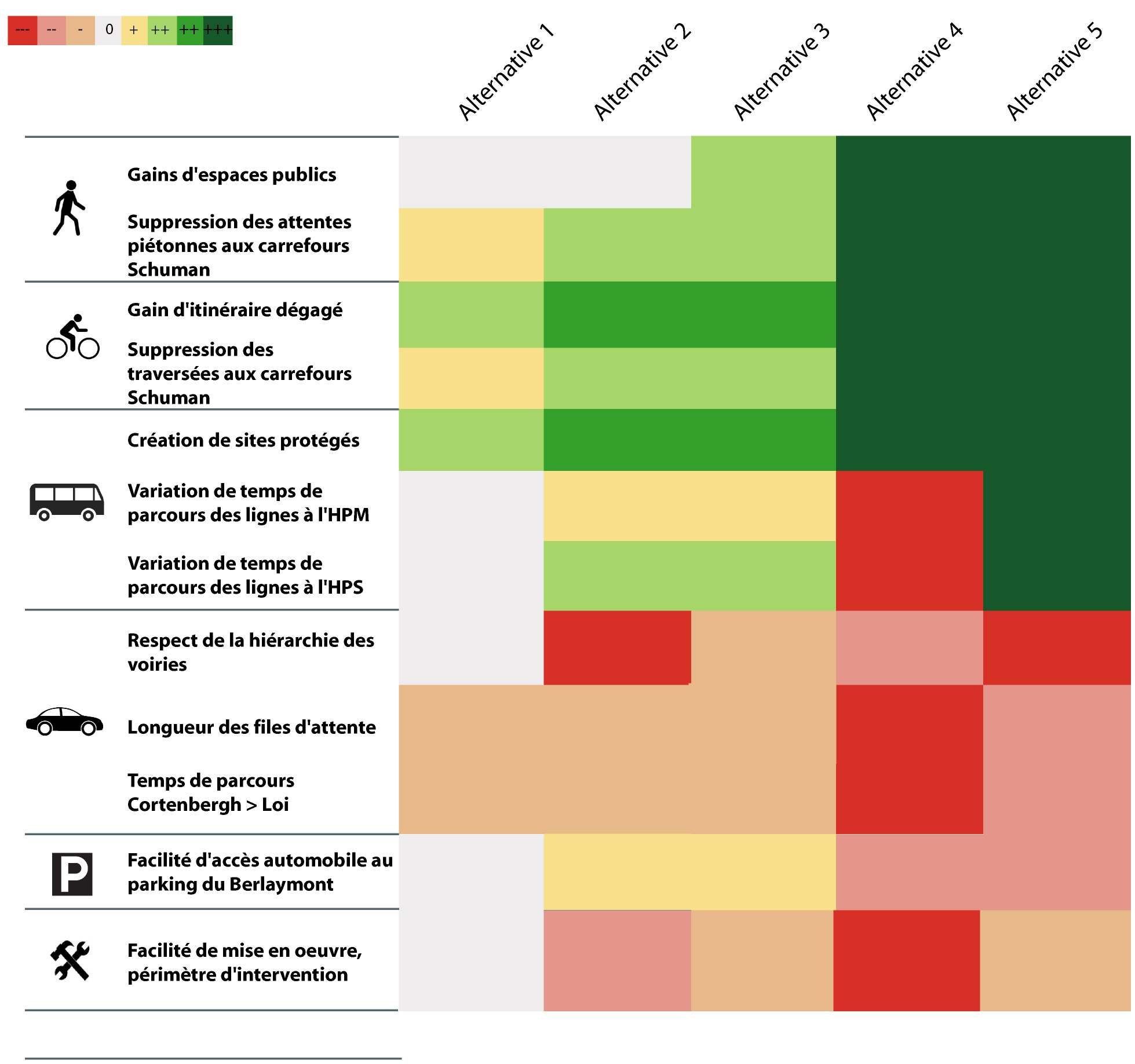Today, technological advances alone cannot longer ensure the smooth movement of people and goods.
Decision-makers have to make wise and adequate choices about the location of activities, modes, networks, land use developments. They cannot afford to make any mistakes, because the consequences of bad choices could be dramatic on urban and territorial level.
So, they have to be able to anticipate changes in behavior and, better yet, encourage these changes and steer them towards “sustainable” mobility.
This requires not only creativity to imagine the measures of tomorrow but also scientific rigor to assess them objectively.
Stratec intervenes in all the matters aiming to improve the accessibility of cities and territories, and in a more global way, seeks to improve the overall living conditions.
On urban and territorial scale
Stratec performs multimodal transport studies
- Data collection and data analysis: counts, observations and surveys; new data sources generated by big data (mobile phones, OBU, tracking devices, …)
- Urban Travel Plans and Mobility and Parking Master Plans
- Strategic action plans within the domain of multimodal traffic
- Network optimization studies (in order to provide better performances, better quality of service …)
- Opportunity studies/assistance to large-scale infrastructure projects
- Management of event-related or construction site-related mobility (modelling of congestion on urban scale)
- Mobility prospective studies
- Strategic transport modelling (4-steps models): macro-models, (dynamic) meso-models
- Modelling of emerging transport modes (carsharing, public transport on demand, automated vehicles, shared vehicles, HOV lanes, platooning, …)
At more local scale
Stratec performs multimodal transport studies

- Data collection and data analysis (continuous updating of ever-evolving tools and sources)
- Intermodality management
- Customized advice to support accessibility strategies
- Corporate Travel Plans
- Opportunity studies/assistance to infrastructure and development projects (traffic, accessibility)
- Mobility and road safety support in case of public space development projects
- Microsimulation of movements integrating new modes and behavior
Experts in transport modelling
Stratec has built a strong reputation in scientifically quantifying future transport demands by using comprehensive and often complex approaches.
Stratec has built a strong reputation in scientifically quantifying future transport demands by using comprehensive and often complex approaches.
This proven track of record includes all transport-related modelling types:
4-steps multimodal macroscopic models; macroscopic dynamic road travel models (congestion modelling); public transport models; cycling models; pedestrian models; multimodal mesoscopic models; strategic LUTI-models (land use); tariff models; multimodal microscopic models; optimization of traffic signal phasing; …
In this area of expertise, Stratec conducts leading-edge research and reflects, along with universities and software developers, on how to improve existing tools so they will be able to take into account the major mutations that are taking place in the transport sector (carsharing, autonomous cars, shared cars, autonomous public transport, transport on demand …).
A good model requires good data entry. Stratec is also specialized in collecting, auditing and exploiting data generated by different sources, from the most traditional ones including manual counts and observations, large-scale surveys (2,500,000 people have been counted in 2017 within the context of a contract with the Brussels Capital Region) to the most innovative ones, including mobile phones, OBU, data generated by the car manufacturers, other big data.
Our main tools
- Adobe-software
- ARCGIS
- Autocad (Autodesk)
- Autoturn (Transoft solutions)
- Google Sketch up
- Intergraph (Microstation)
- MAPINFO
- Saturn (W.S ATKINS)
- TRANSCAD
- VISSIM (PTV)
- VISUM (PTV)
Some key references :
View moreDREIA Ile de France
2018 - 2020
Calage global du modèle de déplacements MODUS en Île-de-France
-
Calage global du modèle de déplacements MODUS en Île-de-France
VIAS Institute
2018 - 2018
Simulation de l’impact d’un décalage de l’heure de départ sur la congestion en heure de pointe sur le réseau routier structurant belge
ENABEL
2018 - 2018
Actualisation du Plan de Déplacements Urbains (PDU) de l’algérois
CTB Algérie
2017 - 2017
Formation du Ministère des travaux publics et des transports d’Alger sur le thème “Environnement et Transports”
Bruxelles Mobilité – AED
2017 - 2017
Etude sur les crédits de mobilité échangeables
Bruxelles Mobilité – AED
2017 - 2018
Accompagnement pour l’établissement d’une stratégie d’accessibilité concrète du réseau de transport public de la STIB
Presentation - FrenchINFRABEL
2016 - 2016
Exploitation de données « floating mobile data » de l’opérateur Orange
Presentation - FrenchBNETD
2014 - 2016
Etude de Trafic du projet de train urbain d’Abidjan
Région de Bruxelles-Capitale
2013 - 2013
Etude des déviations de trafic à prévoir pendant la rénovation du tunnel Léopold II
Bruxelles Mobilité – AED
2012 - 2017
Modèle multimodal stratégique de déplacements de la zone urbaine de Bruxelles



